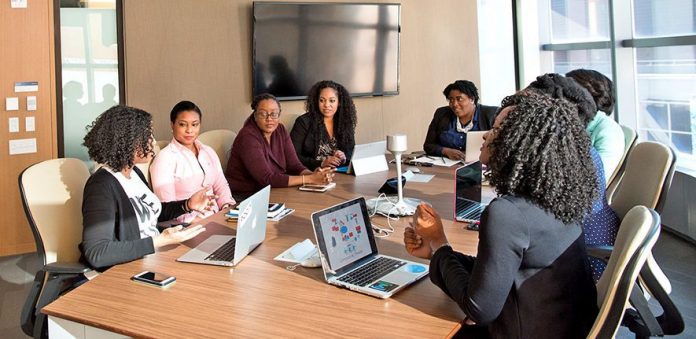As South Africa concludes August as women’s month, the government’s own statistics on women’s presence in leadership and managerial positions are peculiar.
The peculiarity is not only at the level of senior managers, but also at the level of ministerial advisers, which has mostly escaped focus and monitoring.
As of June 2022, data from Persal (the government HR management system) indicates that women make up 56% of the estimated 1.2 million public servants. One would therefore expect that at the higher levels the representation women would mirror this trend, but alas.
Representation changes dramatically as salary levels increase from level 11 upwards. Suddenly, only 47% of women form part of salary level 11, and at level 12 it is down to 9%. In the senior management service (SMS) band, women make up only 38%. This is despite a 2006 cabinet resolution to have 50% gender parity at SMS level.
Moving to the highest level in the bureaucracy, the situation gets worse. Women only make up to 19% of all appointments at salary level 16, which is the head of department or director-general category.
The public service has 161 national, provincial, departments and government components. At the national level, out of the permanently employed DGs, 23 are male and only 12 female.
In provinces, only KwaZulu-Natal has a female DG, with a shocking 54 males occupying provincial heads of departments positions, and only 23 females in similar positions.
Interestingly, even at the special adviser level, men are over-represented with 53 being males and only 23 being female out of the 76 employed to advise ministers. This results in a male-dominated perspective advising ministers on policy matters, in a patriarchal society that is currently facing an onslaught on women.
The issue, though, goes far deeper than the statistics presented here. It is society’s recognition of the value and contribution of women in the public life of the country. It is the appreciation of the role that women have played, both in the fight against apartheid, and the building of a new non-patriarchal South Africa.
Government departments’ failure to raise the profile of women in higher managerial and ministerial advisory position is, regrettably so, a manifestation of a society that fails to rise to the occasion of women recognition and empowerment. It is a manifestation of lethargy by both the political and bureaucratic leadership and management.
It is quite clear that government departments are struggling to meet gender transformational targets despite progressive policies in place.
The public sector is expected to lead the developmental and transformation agenda of our country. Thus the failure to attain gender representation at all levels is unfortunate.
The Department of Public Service and Administration is reviewing all the public service HR management and development policies. It seeks to ensure that HR transformational policies yield and maintain a highly skilled, ethical, representative, and developmental public service. An essential element in this regard is to ensure that women’s recognition and empowerment in the public service is expanded to all levels with the sincerity it deserves.
The government’s approach to both the conceptualization and application of its HR strategies needs to ensure that HR practitioners move from merely being administrators to playing a more organizational development strategic role.
HR management needs to move beyond routine checks of job descriptions, job evaluations and mechanical filling of posts to a gender transformation context and awareness. While it is important to attain clean audits, these need to be augmented by appropriate and relevant transformation outcomes that include gender transformation parity across government levels of employment.
More than government HR practitioners, a more strategic leadership needs to be conceptualized and applied by political leadership.
These are policymakers, and set the tone at the top. As a country, we have a rare opportunity to make a great leap forward; to not only free women from the degradation of being deprived of leadership positions but to free all South Africans from the degradation of being deprived the inspirational leadership of women.
- Mabunda is acting deputy director- general: human resources management and development at the Department of Public Service and Administration

Follow @SundayWorldZA on Twitter and @sundayworldza on Instagram, or like our Facebook Page, Sunday World, by clicking here for the latest breaking news in South Africa. To Subscribe to Sunday World, click here




